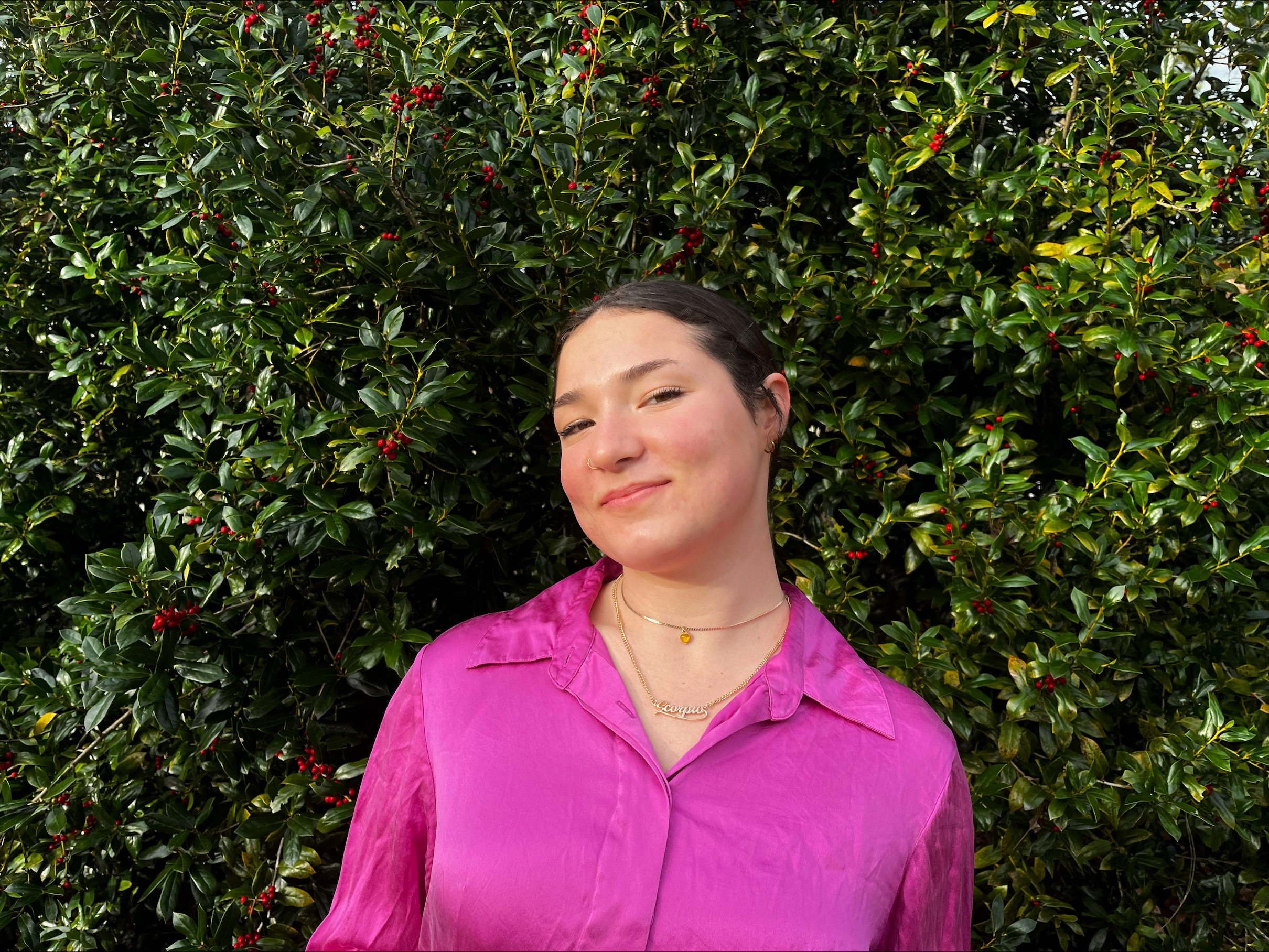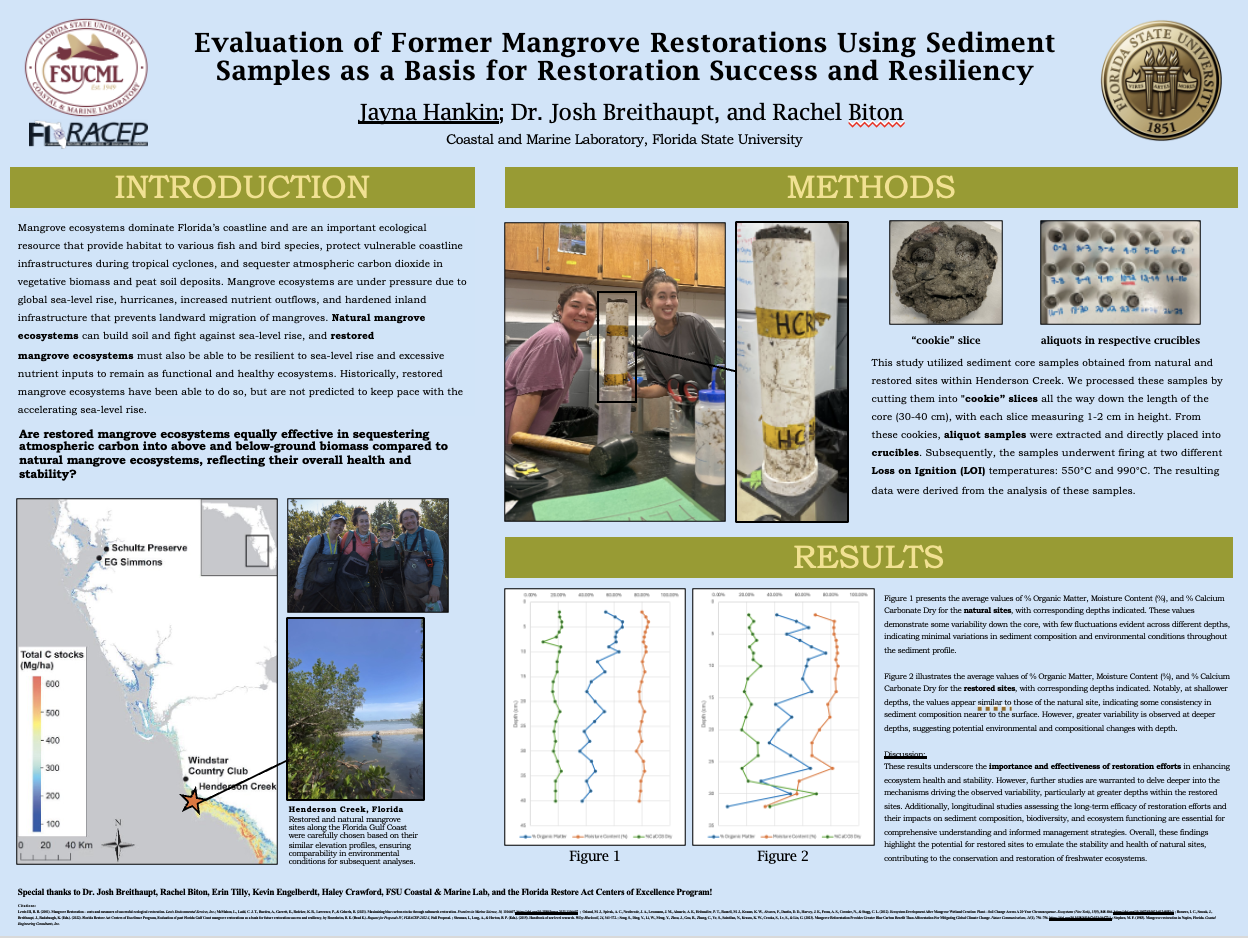Research Symposium
24th annual Undergraduate Research Symposium, April 3, 2024
Jayna Hankin Poster Session 1: 9:30 am - 10:30 am /109

BIO
I am deeply passionate about the intricate workings of our planet's marine ecosystems. Being from the coastal town of Dana Point, California, I have always been drawn to the mesmerizing beauty and complexity of the ocean. My research interests encompass various topics within marine biology, ecology, and conservation biology. As I embark on my academic journey, my ultimate career goal is to pursue a master's degree focused on these interests, allowing me to contribute meaningfully to conserving and understanding our precious marine ecosystems.
Evaluation of Former Mangrove Restorations Using Sediment Samples as a Basis for Restoration Success and Resiliency
Authors: Jayna Hankin, Josh BreithauptStudent Major: Biology
Mentor: Josh Breithaupt
Mentor's Department: Coastal & Marine Laboratory Mentor's College: Florida State University Co-Presenters:
Abstract
Mangrove ecosystems in Florida serve as crucial habitats for diverse species and offer protection against tropical cyclones while storing carbon dioxide. However, they face threats from rising sea levels, hurricanes, and human activities, which hinder their resilience and sustainability. While restored mangrove ecosystems have shown resilience historically, their long-term success in the face of accelerating sea-level rise remains to be determined. Considering various ecological factors, we hypothesize no difference in carbon sequestration between restored and natural mangrove wetlands. Our approach involves assessing carbon fixation and sediment accretion rates, with natural sites serving as benchmarks for comparison. Sites along the Florida Gulf Coast were surveyed, selecting areas with similar elevation profiles for comparison. We evaluated carbon stocks, organic carbon loss, and soil properties, including dry bulk density, loss on ignition, moisture content, and calcium carbonate concentrations. The findings demonstrate the capacity of restored mangroves to rapidly regenerate soil to the point of resembling natural mangrove sediments. While natural sites initially display more stability and uniformity than restored sites, the latter exhibit complexity and variation as part of the restoration process. Over a couple of decades, these variations diminish, offering promising prospects for ongoing restoration efforts. By investing in mangrove restoration, we enable swift recovery of natural functionality.
Keywords: Mangrove, Restoration, Ecology, Carbon Sequestration, Soil Analysis

